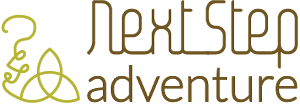Remember Evelyn Davis?
I started working in Des Moines in 1980 when I was fresh out of graduate school. Iowa State University Extension hired two urban 4-H professionals to fill one position. The Polk County Extension Director’s reaction was not warm. “There’s no such thing as a free puppy” was his frequent response to our requests.
Extension negotiated with Evelyn Davis for free rent in exchange for free programming with the families, kids and staff at Tiny Tots, and we moved into an old classroom on the second floor of the old Nash Irving Middle School, then the home of Evelyn Davis’ Tiny Tots Center. It was a cold day in February 1980, and Horticulture Specialist Mohammad Khan took us on a breakneck tour through the “hood” in his tiny Nissan. Things have improved a lot since then. Hofmaster and I learned our way around the city by being lost a good deal of the time.
Evelyn Davis’ work continues through the Evelyn K. Davis Center for Working Families. The Center houses Gateway to College and other programs for individuals and families that struggle to make ends meet, much less get ahead. Ms. Davis was a force of nature that impacted me personally as well as professionally.
I felt my baby’s first kick in the hallway at Tiny Tots waiting out a tornado warning. When I brought Kate to the center a month or so after she was born, Ms. Davis took my crying child from Charlene Owens’ arms and she quieted and settled against that warm caring heart immediately.
Ms. Davis helped our nutrition education programs connect with other organizations in the community, and let us hone our teaching skills on her staff and clients. Our joint efforts brought additional ISU staff to the community to work with parenting skills, nutrition education and advise on home improvement. We turned those three classrooms into a real inner city Extension Office that impacted the community for four years.
Now the site of the old Tiny Tots Center is Evelyn Davis Park where we held our first 4-H Portable Challenge Training. We brought Sam Tower in from Washington State University to spend a week with 12 professionals from Extension, Des Moines Schools and Employee and Family Resources. Those five days began the adventure movement in the Des Moines area. That fall we created a physical education class for kids who were at risk of dropping out of high school because they were failing PE. Soon we added afterschool and summer programs, and finally corporate training and work with adult students.
Ten years later we started the Adventure Learning Center with Living History Farms and Polk County Conservation, still the premier course in Iowa. And that’s where I learned to climb poles. But that’s another story!


